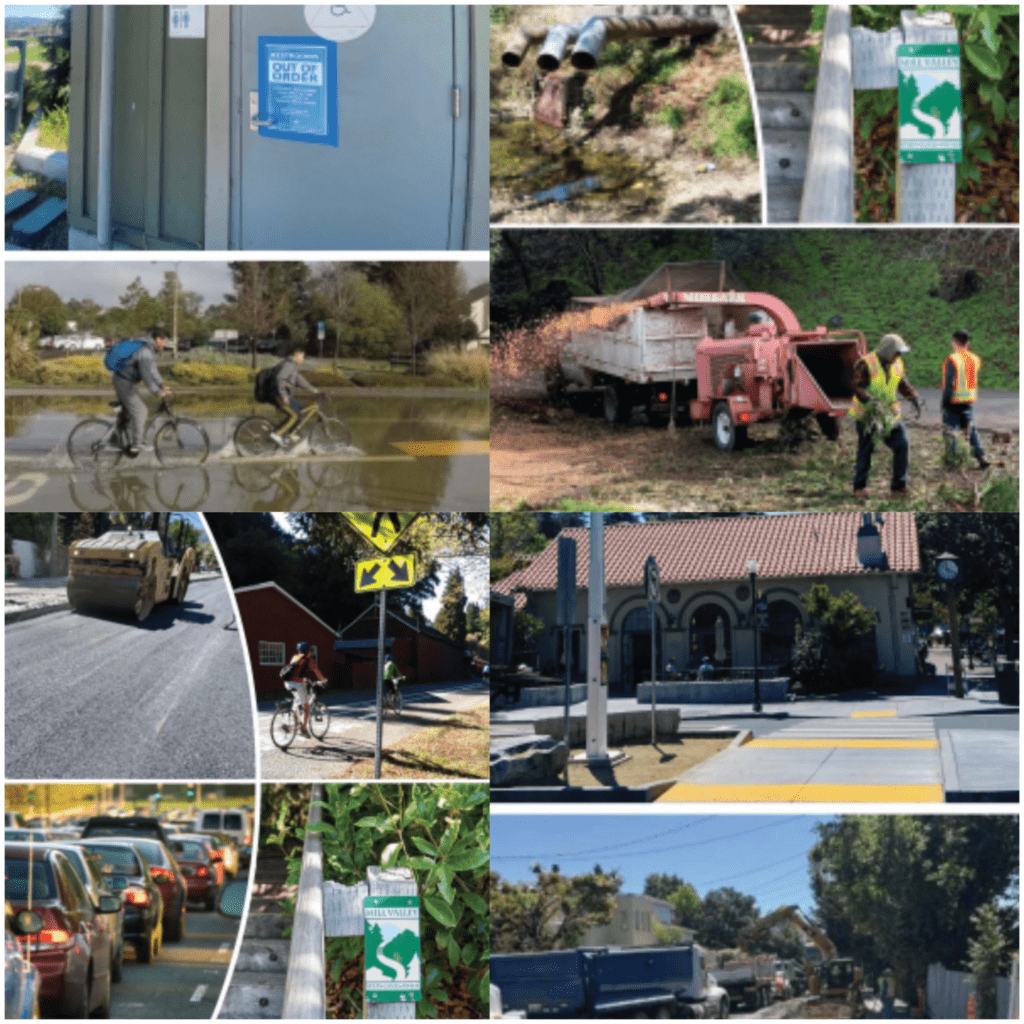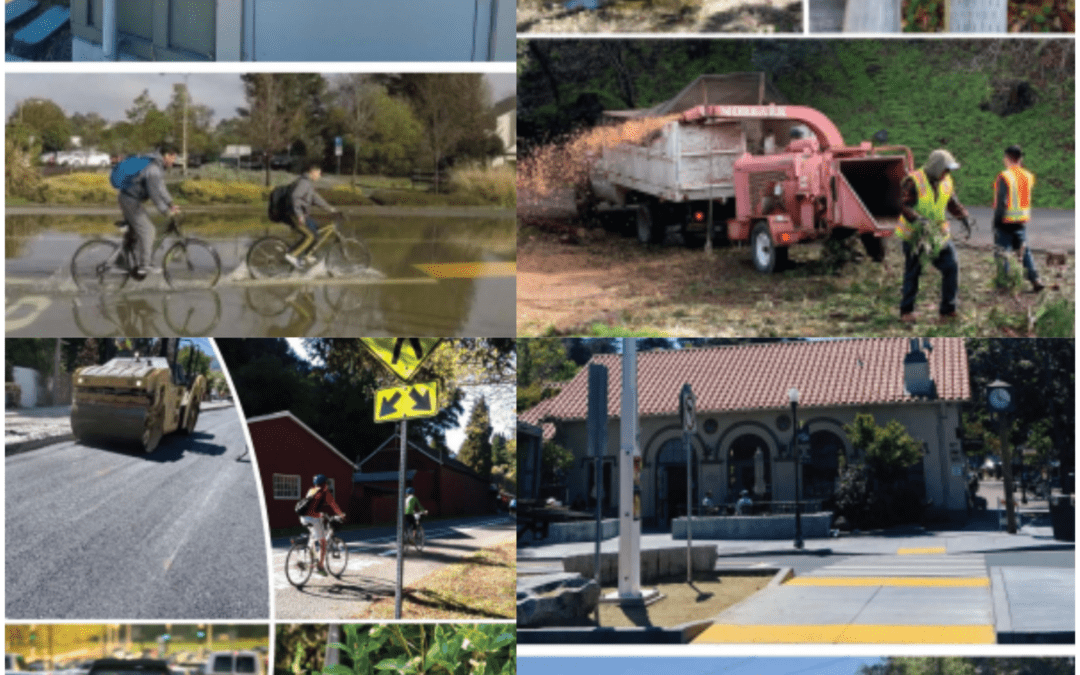 It’s always good to have a plan B.
It’s always good to have a plan B.
On the heels of city efforts to fund its massive, long-term infrastructure needs via a Transfer and Real Property Transfer Tax – an effort whose polling ultimately didn’t meet the necessary support to pass via a EMC Research survey of likely voters – City of Mill Valley officials pivoted in March to direct staff to present a 1% Sales Tax increase ballot measure to voters in November to establish a dependable source of local funding for crucial City services and facilities.
The total, long-term needs are $150 million to $180 million in the next 10-15 years,” city officials said at a City Council meeting Monday.
The staff report for the Council in December 2023 couldn’t have been stark: “Our City’s infrastructure is at risk for significant decline within the next 15 years. How will the City secure funding to address needs such as minimizing the risk of wildfires, repairing and maintaining local streets, roads, parks, and facilities, and addressing flooding issues in order to improve sustainability, emergency preparedness, and accessibility? These are issues facing every municipality in the Bay Area and beyond, and city officials appear determined to get out in front of it.”
The process began in 2023 with a “temporary subcommittee” of 15 Mill Valley residents that held five meetings to bolster the efforts of the city staff to identify a path forward, reviewing City finances, infrastructure reports, exploring funding options, and providing recommendations to the Council.
A detailed presentation from the City’s Public Works Department followed, outlining infrastructure needs in various areas, such as wildfire prevention and evacuation, streets and sidewalks, storm drains and flood-prone areas, bridges and culverts, roadway and hillside stabilization, City facilities, parks and playgrounds.
Parrinello shared that the City “demonstrated, pretty clearly, that the infrastructure needs over the next 15 years will represent repair costs in the range of $150-$180 million, and the City budget does not have enough extra money to fund all that.
“This is about the force multipliers,” City Manager Todd Cusimano said at a hearing on Monday, “When we tell our story, the work done by prior councils and staff sets us up for success and it is, quite frankly, what separates us from other towns. (That work) is what separates us and gives us the opportunity to attack this (infrastructure work).
“But if we don’t do anything – fire, landslide and flood risks, what is the cost to do the work? You can double or triple those costs by not doing anything if you take it straight out of our General Fund. Once you hit that tipping scale, you can’t come back.”
“We’re in a good community that understands the value in investing in infrastructure,” Carmel said. “This is the biggest thing that we’ve got coming up in the next year. If we’re successful in getting the community behind an infrastructure ballot measure, it will be one of the most significant measures in Mill Valley’s history.”

